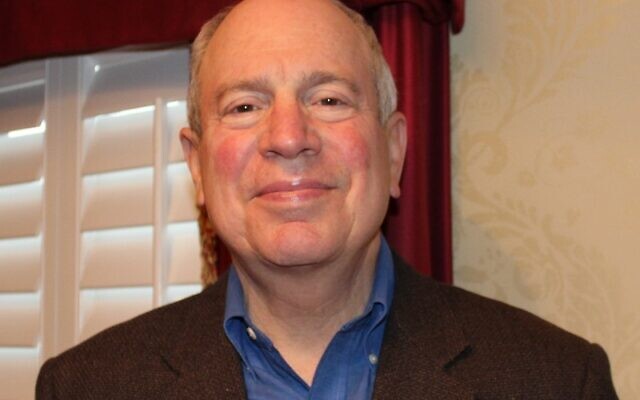A Passover Message from Albert I. Slomovitz
For our Passover holiday issue, we invited members of our community to share their responses.
A Somber Seder
This year’s seder has been changed by October 7th. It can serve as a conduit of grieving and healing for the Jewish world. The word Seder itself might be spoken about. It means order or arrangement. For many, this year has been out of order and a sad twist in our lives. Those leading seders could solicit from guests their feelings of disorder.
At my seder, I am leaving one seat empty. This seat is in recognition of those still kept as hostages. If they are freed (my daily prayer) then the empty seat could symbolize the IDF heroes and others who died so prematurely as soldiers or innocents defending Israel.
Almost every symbol of the seder can reflect Oct. 7th.
The Karpas – the green vegetable, reminds me of the many kibbutzim that are now lying fallow. Unharvested crops and unattended animals no longer being cared for. The salt-water reminds us of the tears we have shed since Oct. 7th. When will they end?
Ya-hatz – Breaking the middle matzah. The Matzah breaks so readily. This cracking is symbolic of how many felt after Oct. 7th. Our sense of security and belief in the protection of the Israeli forces against all enemies was shattered. We watched in absolute horror as terrorists flew into the Nova music festival. We are taken aback at how quickly our feelings of safety and security vanished.
The Four Questions – These can serve as a time to discuss the new reality of Oct. 7th and the tidal wave of antisemitism sweeping around the globe. Why is this night different from all other nights? Because we are able to sit together with family and friends, but so many others will never have that opportunity. Why is this night different? Who would have expected the public arguing and major differences between an American president and Israeli Prime Minister who embraced months ago and are now arguing on the world’s stage?
When the Ten Plagues are read, I would add others including Hamas, and antisemitism as modern-day plagues, without any wine being taken from our cups.
The song of Da-ya-nu recounts the many miracles that G-d has brought to the Jewish people. If we will sing it, it will be in muted tunes.
The Bitter herbs are what I feel about Oct. 7th. Bitter about the deaths, savage behavior, loss of innocence and the pain that so many have suffered due to this attack. When the Afikomen is found, I would suggest that any financial rewards be directed to an appropriate Israeli organization.
The 4th cup of wine and the opening of the door for Elijah are especially poignant this year as we think about those who wish us much harm, even death. Do we want the fulfillment of this sentence, “Pursue them in anger and destroy them from under the heavens of the Eternal.” And what about Elijah? Does the reality of Oct. 7th make the arrival of a period of peace more distant?
The evening ends the well-known phrase, “L’shanah ha-ba-ah b’ya-ru-sha-layim,” “Next year in Jerusalem.” We can certainly hope that the coming year will be the beginning of some return to normalcy for Israel and the Jewish people.
Rabbi Albert I. Slomovitz is the Rabbi at Large, Congregation Etz Chaim, Marietta, Ga., Assistant Professor of American History, Kennesaw State University, and Founder of the Jewish Christian Discovery Center.




comments